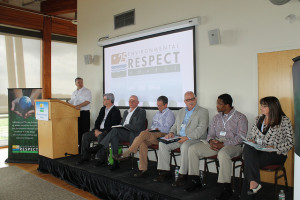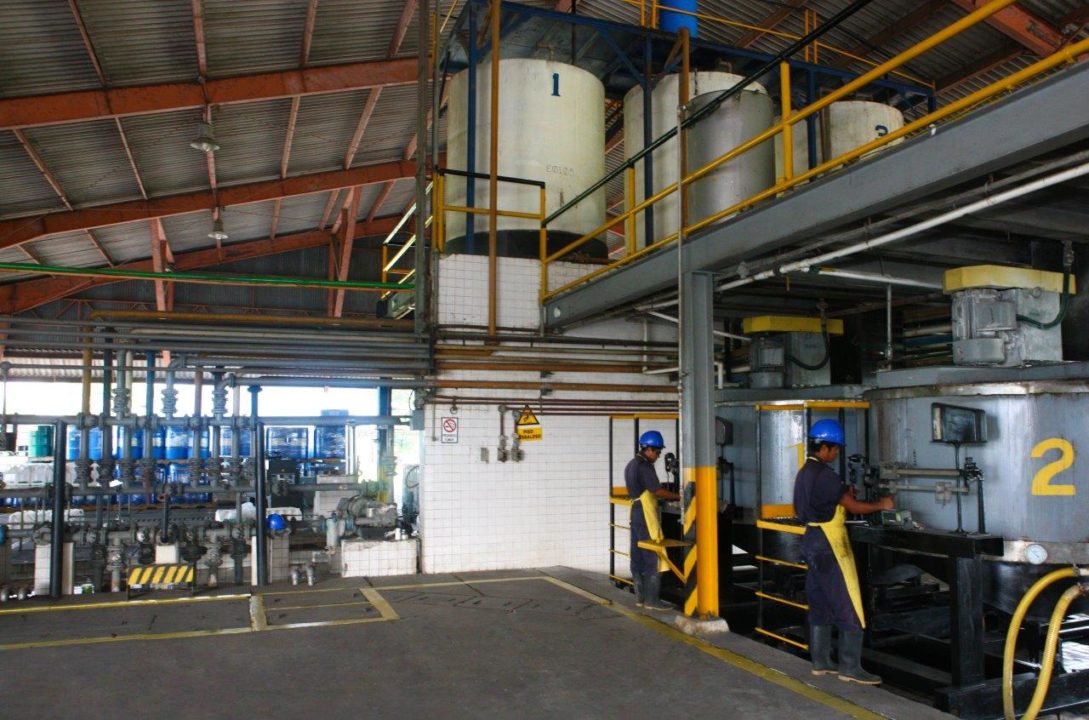ERA Awards: The Retail Leadership Roundtable

CropLife Editor Eric Sfiligoj moderates a panel of distinguished guests as part of the inaugural Retail Leadership Roundtable at the 25th annual Environmental Respect Awards sponsored by DuPont.
The inaugural Retail Leadership Roundtable, held as part of the 25th Anniversary of DuPont’s Environmental Respect Awards, focused on the challenges facing the agriculture industry and began asking the question how all segments of the industry can work together to provide a unified message with a single voice.
The panel included, Amy Asmus, Asmus Farm Supply; Vince Adams, Winfield; Paul Simpson, Simplot; Rod Wells, GROWMARK; Doug Busdeker, The Andersons; J. Billy Pirkle, CPS, Loveland, CO.
“We talk to each other; we’re not talking enough to the non-farming public,” Busdeker said.
Considering how small the small percentage of the population that touches farming in any capacity – about 98% of the American public, Adams says – it’s little wonder others often control the message.
“It’s not just trying to communicate with the 98 percent, it’s also getting the right messaging that resonates with the 98 percent,” Adams said.
One of the challenges is that much of what the industry has to share – the science behind crop protection – doesn’t excite the population.
So much of what we do is science,” Wells says. “It’s hard to turn science into sexy.”
Somehow industry stakeholders need to find “a common message, best practices and a common voice to get that message out there,” Pirkle says.
One of the challenges to that single message and single voice is that issues around the country are different. For example, California and parts of the West face droughts and water restrictions.
“In California, everyone is talking about water,” Simpson says. “There is a lot of misinformation and finger pointing.”
Reservoirs are at 50% and if the snow and rains don’t come this coming winter, “I don’t know what’s going to happen.”
The Great Lakes region has almost the opposite problem. This season has had so much rain the western part of Lake Erie has seen an algal bloom.
According to Asmus, in Northern Illinois, instead of working with companies, the water department, which has the equipment to scrub excess nitrogen from the water, is suing entities where there was too much runoff.
While the issues might seem different on the surface, a member of the audience was able to find the common thread. Karen Musson, co-owner of Gar Tootelian in California summed it up for everyone.
“It’s always about the money,” she said.
As for the algal bloom, the exact cause of the problem is difficult to pinpoint. Some argue agriculture contributes 50% or more of the problem, Busdeker says. But one thing the industry can do to change the message is to own up to its problems and work to correct them.
According to Busdeker, The Andersons is doing just that. Company CEO Mike Anderson told him, “If we’re part of the problem with the algal bloom in Lake Erie, we need to be part of the solution,” Busdeker says.
There is no question agriculture is under greater scrutiny from more entities than ever before. While it might be easy to dismiss the attention as the ill-informed environmentalists, their concern is not entirely unfounded.
“Although we are not 100 percent to blame, we are not 100 percent blameless,” says Asmus.






